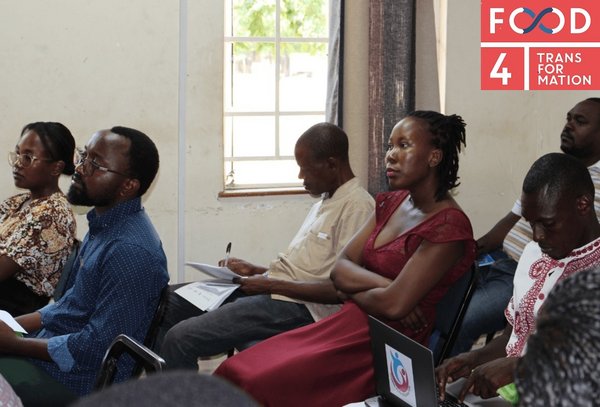 Read this article in French
Read this article in French- Share this article
- Subscribe to our newsletter
GIZ – Think20 policy brief centres on agroecology
In today's world, ensuring access to sufficient and safe nutritious food remains a pressing challenge, with current food production and consumption patterns contributing to ecological degradation and global malnutrition. Recognising the urgency of transforming food systems, the Working Group on Food Systems and Agroecology of GIZ India’s Environment, Climate Change and Biodiversity Cluster, in collaboration with partners, has shed light on the potential of agroecology through a policy brief published by Think20, an Engagement Group of the G20.
Agroecology, as defined by the High Level Panel of Experts on Food Security and Nutrition (HLPE-FSN) in 2019, represents an approach for transforming food systems. Guided by 13 interconnected principles, aligned with the ten elements of agroecology put forth by the Food and Agriculture Organization of the United Nations (FAO), this transdisciplinary approach encompasses ecological, economic, socio-cultural, technological and political dimensions of food systems. The primary goal is to optimise interactions between humans, plants, animals and the environment, fostering connectivity from field to societal levels, with a focus on strengthening producer-consumer relationships.
The G20’s theme in India, "One Family, One Earth, One Future", underscored the interconnectedness of all life forms and emphasised the impact of human societal choices on this delicate balance. Central in the discussions and events lining up to the G20 summit was the critical role of food systems in achieving sustainability. Agroecology emerged as a pivotal topic, aligning with the G20's broader agenda for sustainable development.
The policy brief advocates for prioritising agroecology within the G20 framework as a key approach toward achieving Sustainable Development Goal 2 (Zero Hunger). Additionally, it calls for the advancement of analytical frameworks capable of identifying synergies, gaps, and trade-offs within food systems. This approach fosters convergence and facilitates multi-stakeholder action across the food system, providing a comprehensive strategy to tackle the complex challenges faced by global food systems.
But has agroecology made it into the G20 New Delhi Leaders’ Declaration? And to what extent was agroecology part of the discussion in Delhi amongst the country leaders?
Kirti Mishra, Director of Ecociate Consultants in Nodia, Uttar Pradesh/India, has more than 25 years of experience in the agriculture, food and development sector. As co-author of the Policy brief and observer of the summit, he offers insightful perspectives on these questions: “The New Delhi Declaration document acknowledges the importance of sustainable agriculture, biodiversity preservation, and gender-inclusive strategies,” says Kirti Mishra, and adds: “It strongly emphasises the need to address the impacts of climate change. Notably, there is an absence of explicit mention of agroecology or the adoption of natural farming, which could have directly facilitated transformative changes towards more sustainable and enhanced food systems.”
(GIZ/wi)
The policy brief can be read and downloaded here





Add a comment
Be the First to Comment